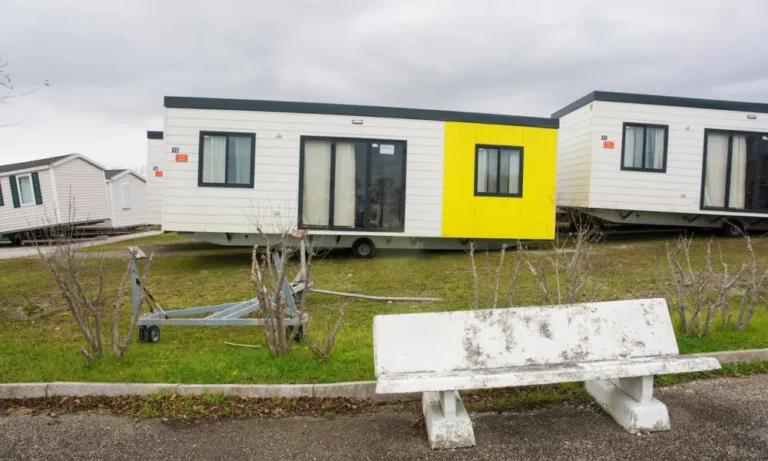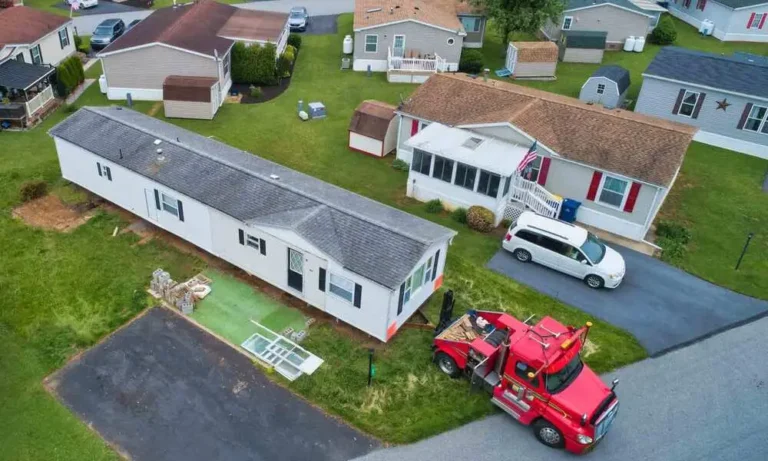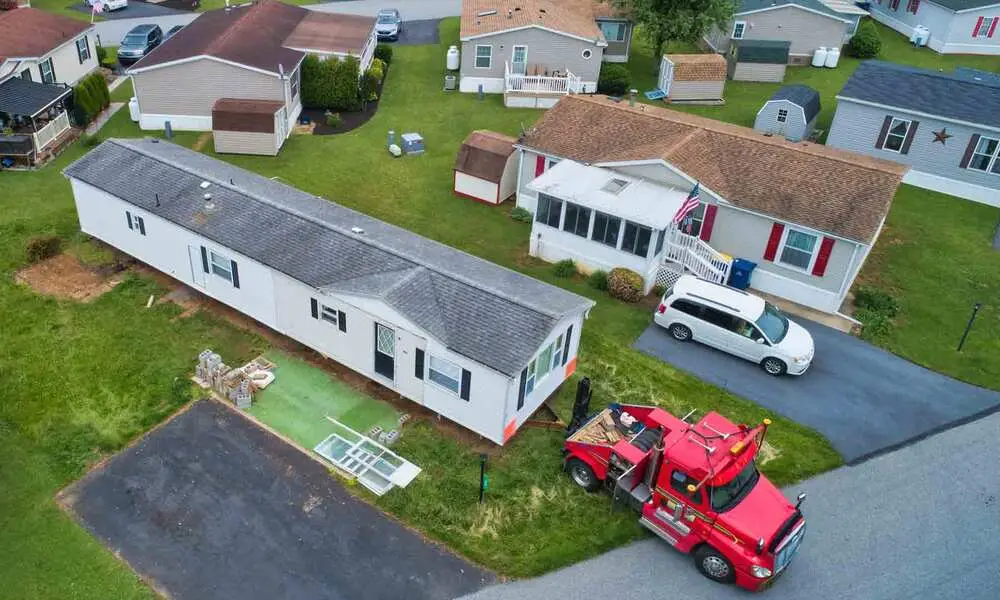How Much Does Moving A Mobile Home Cost is a question many homeowners ask the moment they start planning a relocation. Whether you’re moving across town or taking your home to a brand-new lot, understanding the real numbers is essential. With costs varying widely from state to state, many people feel overwhelmed.
In this guide, we’ll break everything down clearly so you know what to expect. And to keep things simple and stress-free, Chamomile Go is here to help you understand the process from start to finish.
Understanding Mobile Home Moving Costs Overview

Moving a mobile home typically ranges between $5,000 and $20,000 for full-service moves under 100 miles in the U.S. Single-wide homes often cost between $4,000 to $8,000, while double-wides typically range from $8,000 to $15,000. These prices generally include transport, setup, and permits. Of course, your exact price depends on several factors, which we’ll break down in detail.
Before we dive in, remember our goal: keeping your move safe, efficient, and affordable. Companies like Chamomile Go have extensive experience guiding homeowners through the details so nothing is overlooked.
Key Factors Affecting Mobile Home Moving Prices
Below is a simple comparison table to help you understand how each factor plays a role in pricing:
| Factor | Impact on Cost | Example for Single-Wide |
| Home Size | Larger homes cost more to split and move | $5,000–$8,000 |
| Distance | Longer moves raise the per-mile price | $1,000–$5,000 local |
| Service Type | Transport-only is cheaper than full service | $1,000–$3,500 |
| Permits/Escorts | Required for oversize loads | $500–$2,000 in California |
| Site Prep | Leveling and hookups increase cost | $3,000–$4,000 |
Now let’s explain these factors more clearly:
1. Home Size
This is one of the biggest price drivers. A single-wide is simple to load and transport, but double-wide and triple-wide homes require splitting into multiple sections. More labor means higher cost. This connects directly with common concerns around mobile home transport cost and the broader mobile home relocation cost people search for.
2. Distance Traveled
Short-distance moves (under 60 miles) stay affordable, but anything over 100 miles can dramatically increase the total. Fuel, labor, escort vehicles, and special equipment all contribute to rising expenses.
3. Type of Service Needed
You’ll have two main options:
- Transport-only: Cheapest option, usually for short moves.
- Full-service: Includes teardown, transport, setup, leveling, and reconnection.
For most people, full-service moving is the safer choice, especially if your home requires utility disconnection or significant site prep.
4. Permits and Escorts
States like California require oversize load permits and sometimes multiple escort vehicles. These fees must be included in your total estimate.
5. Site Preparation
If your destination land is not leveled, you may need ground prep, steps, skirting, and utility hookups. These can add several thousand dollars to your budget.
Average Moving Costs by Mobile Home Type

Single-Wide Mobile Homes
Most affordable to move, ranging from $1,000 to $8,000 depending on distance. They often do not require escort vehicles.
Double-Wide Mobile Homes
Because these must be separated into two halves, costs rise to $2,000 to $15,000. Labor, preparation, and transport for two sections add complexity.
Triple-Wide Mobile Homes
The most expensive option, generally $12,000 to $25,000+. These require multiple trucks, permits, and escorts.
How Much Does Moving A Mobile Home Cost? If you’re moving locally, for example within Van Nuys or nearby neighborhoods, costs generally stay under $10,000 for well-maintained single-wide homes.
Additional Expenses You Should Prepare For
Beyond the basic moving estimate, there are several extra charges to consider. These often surprise homeowners:
- Disconnecting and reconnecting utilities: $1,000–$3,000
- New skirting and steps: $2,000+
- Insurance during transit: about 1–2% of the home’s value
- Escort vehicles: $1.50–$3 per mile in California
These expenses give you a more realistic idea of your total mobile home movers cost and how much it may differ from move to move.
How to Save Money on Your Mobile Home Move
While mobile home moves are naturally expensive, there are several smart ways to cut costs without sacrificing safety:
1. Gather Multiple Quotes
Always get 3–5 quotes from licensed mobile home transportation companies. Prices vary significantly by season and availability.
2. Move During Off-Peak Seasons
Fall and winter tend to be less busy for movers, bringing better pricing and faster scheduling.
3. Prepare Your Site in Advance
If you can level the land or clear debris yourself, you may save $2,000 or more.
4. Choose Experienced Local Movers
For people in areas like Van Nuys or Sherman Oaks, selecting professionals familiar with local traffic and regulations is extremely helpful. If you’re searching for movers sherman oaks, look for companies with positive reviews and experience with oversize loads.
Since mobile home moving requires precision and safety expertise, the guidance companies like Chamomile Go provide can make a major difference in your experience and final cost.
Final Thoughts
How Much Does Moving A Mobile Home Cost? Moving a mobile home is a major project, and the price depends on home size, distance, service level, and site requirements. By understanding the details behind the cost to move a mobile home and planning ahead, you can avoid surprises and stay within budget. Whether you’re moving locally or long-distance, make sure to prepare early, compare quotes, and choose movers with proven experience.
If you’re ready to move forward or need expert guidance on budgeting and logistics, feel free to contact us for support.
FAQs
What is the average cost to move a mobile home locally?
For short-distance moves under 60 miles, most homeowners spend between $1,000 and $8,000, depending on size and setup needs.
Are permits required to move a mobile home in California?
Yes, California requires oversize load permits, and larger homes may need one or more escort vehicles to ensure roadway safety.
Does distance matter more than home size?
Both matter, but home size typically has a bigger impact. Larger homes require splitting, more labor, more trucks, and additional safety measures.
How long does it take to move a mobile home?
Most local moves can be completed within one to three days, depending on how much teardown, transport, and setup work is required. More complex setups or utility reconnections may extend the timeline.
Can I move a mobile home myself instead of hiring professionals?
No. Moving a mobile home requires licensed movers, permits, escort vehicles, and specialized equipment. Attempting a DIY move is unsafe and illegal in most states due to strict transportation regulations.






